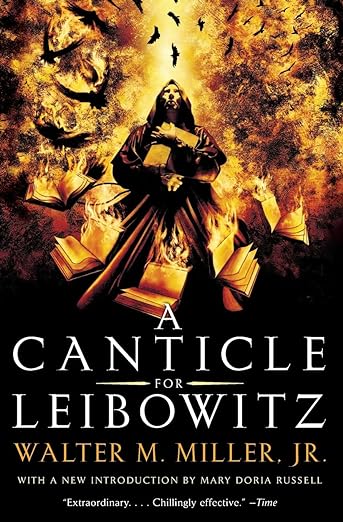As with any story, it helps to start at the beginning. And in my case, all my beginnings were linked to Austrian economy are located at Grove City College. How I ended up in Grove City is an extremely improbable journey, with zigzags, the probability of which defies calculation. I was not a focused student in high school or even early in my college career. My interests were focused elsewhere and my dreams were directed toward a life far removed from anything associated with the “life of the spirit.”
Once I wanted to study economics, my professor, Dr. Hans Sennholz, guided my study path with his entertaining and enduring lectures (I can still hear his voice 40 years later) and the books he encouraged me to read, including Frédéric BastiatIt is Economic fallaciesthat of Henry Hazlitt Economics in one lesson And Milton FriedmanIt is Free to choosebut also Carl MengerIt is Principles of economics, Eugen Bohm-BawerkIt is Capital and interest, And Ludwig von MisesIt is Theory of money and credit, SocialismAnd Human action. Before I graduated, I had read Adam SmithIt is The wealth of nations, Jean-Baptiste saysIt is Treaty, David RicardoIt is Principles, John Stuart MillIt is Principles, FA HayekIt is The road to serfdom, Israel KirznerIt is The economic point of view and that of Murray Rothbard Man, economy and state. Sennholz also made sure we read Marx, Keynes, Veblen and Galbraith. I must also admit that in addition to these classic works, I read everything that Sennholz himself had published (in particular The era of inflation) and became a regular reader of The free manand other writings by Foundation for Economic Education staff.
My philosophical vision and criticism of scientism in the study of man
My religion and philosophy professor, Dr. Reed Davis, introduced me to the work of Michael Polanyi, and in particular the question of presuppositions in scientific research. I was able to see broader applications and a link between what I was learning about how to do economics and the philosophical discourse towards which Polanyi directs us in thinking about the study of man. In Sennholz’s presentation, economics was a human science and was corrupted by the unwarranted intrusion of the methods of the physical sciences into its domain. Mises (and Hayek) had good reasons for this position, but Polanyi gave me additional reasons as I read and learned from him.

My appreciation of Polanyi only increased over the next few years, as I was appointed research assistant to Don Lavoie. Lavoie was busy finishing two books – Rivalry and central planning And National economic planning: what remains – both would be published in 1985. Lavoie blended Austrian economics with the growth of knowledge literature in the philosophy of science, including Polanyi. Thus, my early exposure to Polanyi proved to be an advantage in my work with Lavoie.
The great strength was that Polanyi told us not only how study, but What study – the growth and use of knowledge in society. Of course, this feeds directly into Hayek’s research agenda. It turns out that Polanyi was also a critic of the socialist planned economy and the Soviet system in particular, as were Mises and Hayek. Many points of confluence emerged during this first year of graduate school with what I had been prepared to learn from my time at Grove City.
Graduate economics is a technical discipline, similar in many ways to engineering or a form of social physics. But economics as it is practiced at the Austrian School of Economics is a philosophical science and is more akin to the human sciences than to science. I had to learn to live academically in two worlds at once. My education at Grove City College and the mentorship I received at George Mason prepared me to do just that. And I hope others can see this example in my writing and teaching over the following decades.
Analytical puzzles and economics
As much as I was attracted to economics as a philosophical science, the conundrums of economics as understood by my peers in the discipline also intrigued me. The most fundamental puzzle was understanding how markets worked. The textbook’s presentation does not seem to explain how the market economy came to be, but simply what the optimal outcome would be if the market did all its work. There was no real theory in the textbook functioning of economic forces, only a presentation of the consequences that arise from the influence of economic forces. work. It was very unsatisfying for me and became an obsession to fixate in my mind and the minds of others. Sennolz introduced me to this discipline in my youth and I have never been bored thinking, speaking or writing about economic science, its history, its method and its applications.
I’m a fan of economics and economists, just like I’m a long-time fan of the New York Yankees. In fact, I consider the Austrian School of Economics to be the New York Yankees of economics. The Austrians have arguably won more major debates than any other school of thought. methoddenstreit; the debate on socialist calculation; monetary theory and political debates; methodological disputes over excessive formalism, naive empiricism and aggregation problems; and the benefits of trade, migration and development for the betterment of the world’s least advantaged and most vulnerable populations. However, unlike the Yankees, many fail to recognize the flags of the Austrian economy. This piqued my curiosity to understand how such a gap between perception and reality could persist among economists. Thus, the sociology of the profession caught my attention as much as the substantial contribution to economic science of what I called main economy. Traditional economics reflects the current fashions and fashions of science, while traditional economics reflects the fundamental and enduring principles that science teaches us about how the world works. Austrian economists explain how the world works, traditional economists explain how the economics profession works – they are different things. Learning this was a long and difficult awakening process.

My philosophical, analytical, and sociological interests are all interconnected. And once again, I returned to my roots at Grove City College, in this case reading the work of Walter Miller A song for Leibowitz, which taught me that knowledge is not just recycled, but evolves in fits and starts, with periods of progress interrupted by periods of regression. Knowledge processes evolve over time in a sort of corkscrew: progress is made, but sometimes we go back and then move forward. Knowledge can be lost and must be regained before we can progress. Economics is particularly prone to this problem because, as Hazlitt taught in Economics in one lesson, a healthy economy is built through long chains of reasoning that many cannot or will not follow, and in the gaps, special interest groups will exploit the situation to push their preferred narrative in hopes of continuing their program. This was indeed the case during the period 1920-1980, as we debated the merits of socialist economic planning – despite evidence of economic deprivation and political tyranny. In the 1980s, the evidence against the socialist experiment grew to such an extent that even the most stubborn minds had to concede the points made by Mises and Hayek. My early work as an economist focused on precisely this subject, and my first three books detail the history, operation, collapse and transition of the socialist economy in Eastern and Central Europe and the former Union. Soviet.
How could economists have gone wrong in an experiment of this magnitude?
Academic life
How to make a career in the life of the mind? It is linked to an aspiration to be guided by curiosity and to adopt an unquenchable thirst for learning throughout one’s life. You must be free to ask questions that might not have answers, let alone easy answers.
It is the recognition that knowledge increases in society (remember the corkscrew) and that the more you know, the more you know that you do not know. Teaching allows us to interact with young, curious, and compassionate minds eager to understand the world and work to repair a broken world. Our job as teachers is to harness this curiosity, to demonstrate to each generation how the tools of economic reasoning can be indispensable aids in unleashing their curiosity and disciplining their thinking so that they can effectively pursue the compassion they have and their desire to do good. in the world.
Conclusion
My life as an Austrian economist has been great and I hope to continue learning and working for decades to come. The Austrian economy, properly understood, is a growth industry. We are constantly building a better future and the promise of even more scientific victories in the years to come. Being part of this heritage is a privilege.
(Editor’s note: we can read like Boettke- and with Boettke- in our Book club without due date.)


